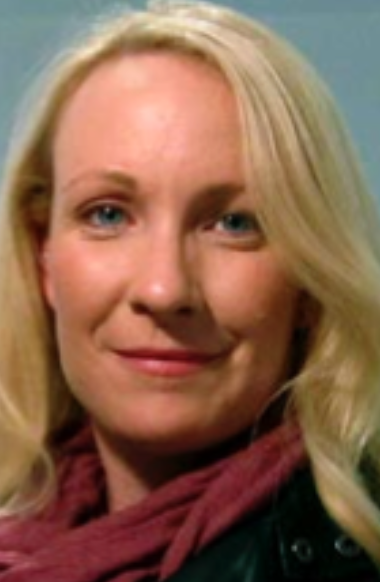2015 Cohort of HGHI Burke Global Health Fellows

Bethany Hedt-Gauthier
PhD
Biography:
Dr. Hedt-Gauthier serves as a member of the Global Health Research Core and a Research Advisor to Partners In Health/Rwanda. As a biostatistician, she is notable for her innovative application, development and evaluation of research and program monitoring and evaluation methodologies for the improvement of health of populations in resource-limited environments. In addition to providing technical support to research in Rwanda, Dr. Hedt-Gauthier also leads a variety of activities to build research capacity and teaches courses in biostatistics and quantitative research methods in Rwanda and at Harvard.
Burke Fellowship Research Abstract:
The research will thoroughly explore a set of operational research questions related to surgical care in rural Rwanda. The key questions include the following. With what medical conditions do patients present for surgical care in rural district hospitals and how are they treated? What are the outcomes of these surgical patients? What resources are available for surgical care in rural hospitals? What are the costs of these resources and how are they funded? All research will be developed as part of a training program to build local research capacity with three training modules: protocol development; data cleaning and analysis; and paper writing. Target trainees will be emerging Rwandan researchers interested in surgery and health care delivery and who can advocate nationally and globally for improved surgical services in rural settings in low income countries.

Ingrid T. Katz
MD, MHS
Biography:
Dr. Katz obtained a BA from Amherst College, and a Master’s in Health Science from Johns Hopkins Bloomberg School of Public Health before pursuing her degree in Medicine at University of California at San Francisco (graduating AOA). After completing her medical training in Internal Medicine and Infectious Diseases, she received a Global Women’s Health Fellowship to study HPV vaccine uptake among adolescents in Soweto, South Africa. Her current research focuses on factors affecting refusal to participate in HIV treatment programs among HIV-infected, treatment eligible adults presenting for testing.
She has worked with multiple NGO’s and multinational organizations, including the Population Council, UNICEF, and the World Health Organization. Dr. Katz has also served as an Editorial Fellow at the New England Journal of Medicine. She has been the recipient of the Harvard Catalyst KL2 Medical Research Investigator Training (MeRIT) Award, the Harvard Global Health Institute Travel Award, the Eleanor and Miles Shore Award, the CROI Young Investigator Award, the Center for AIDS Prevention Scholar Award, and a K23 Career Development Award.
Burke Fellowship Research Abstract:
As South Africa expands antiretroviral therapy (ART) eligibility to people living with human immunodeficiency virus (PLHIV) with higher CD4+ counts, it remains unclear if promoting earlier ART initiation will lead to widespread uptake to stop the spread of the HIV epidemic. We have identified treatment refusal as a critical barrier to ART initiation among asymptomatic PLWH who qualify for treatment. Our findings suggest that optimizing ART initiation for PLWH in South Africa will require an intervention to reduce individual barriers to starting ART, promote social support, and enhance linkages to the healthcare system. Our program, Unyango Iqabane (Treatment Partner), entails developing a peer-driven model of treatment initiation among PLWH in South Africa. We will build upon our prior research to develop an effective socio-behavioral multi-component peer intervention in partnership with researchers at The Desmond Tutu HIV Foundation, University of Cape Town, to ensure that HIV-infected South Africans who qualify for ART, initiate and sustain treatment. This research will inform and test a strategy to engage with treatment refusers about the benefits of early treatment, in order to achieve the goal of “Treatment as Prevention” in South Africa.

Rajesh Panjabi
MD, MPH
Biography:
At age 9, Dr. Panjabi escaped a civil war in his home country of Liberia. He returned as a 24-year-old medical student to serve the people he had left behind, co- founding Last Mile Health, a Liberia and Boston-based non-profit organization working to save lives in the world’s most remote villages. Described by Forbes as “a healthcare model for 1 billion people”, Last Mile Health employs village health workers — giving them the training, equipment, and support they need to perform as community health professionals. Their work has been published in the Lancet, the Journal of the American Medical Association, and PLoS Medicine and has been featured by the Wall Street Journal, NPR and the New York Times.
In 2015, Fortune Magazine named Dr. Panjabi one of the World’s 50 Greatest Leaders. Dr. Panjabi is a Forbes 400 Philanthropy Fellow, a Draper Richards Kaplan Foundation Social Entrepreneur, an Echoing Green Fellow and a Clinton Global Initiative Advisor. He is a recipient of the Outstanding Recent Alumni Award from Johns Hopkins, the Distinguished Young Alumni Award from the University of North Carolina, and the Global Citizen Movement Award. Dr. Panjabi received his medical and public health training at the University of North Carolina School of Medicine, Johns Hopkins Bloomberg School of Public Health, Massachusetts General Hospital and Harvard Medical School.
Burke Fellowship Research Abstract:
The 2014 Ebola epidemic in West Africa has spurred increased attention to the fragile mechanics of healthcare delivery in post-conflict states. The epidemic originated in remote rainforest region of rural Guinea, rapidly crossed into Liberia and Sierra Leone, and has since grown to become the largest Ebola outbreak in history. Persistent chains of transmission have been fueled by an overwhelmed and under-resourced healthcare infrastructure, and exacerbated by the loss of hundreds of health care workers in a setting where human resources for health were already severely limited.
In stark contrast to the current epidemic, all prior outbreaks in other low-income, sub-Saharan African countries have been controlled after a few weeks and, at most, hundreds of deaths. An important task for the public health community is to identify the features of the West African region that predisposed it to such a disastrous epidemic. While the exact mechanisms underlying the scope and tenacity of this outbreak are only beginning to be elucidated, the extreme fragility of the underlying health safety network in post-war Liberia – especially in remote rainforest areas — is likely a major contributor.
Last Mile Health — working with the Liberian Government, researchers at the BWH Division of Global Health Equity and HMS Department of Global Health and Social Medicine — has developed a demographic and health survey to collect data on essential health indicators in remote rural villages of southeastern Liberian. The survey tool, to be administered on a yearly basis to yield a controlled before/after study design, will focus on maternal and child health indicators and help evaluate and inform community-based health services being deployed to help the health system recover from the Ebola epidemic. Specifically, we aim to inform the organization, local government, national government, and regional non-governmental organizations about the health priorities in the region and inform the Liberian Government’s $165M National Health Workforce Program. We also aim to evaluate our own programs by collecting annual data to measure changes in health indicators prior to and after initiation of targeted programmatic activities.

Pardis Sabeti
MD, DPhil
Biography:
Dr. Sabeti is a computational geneticist with expertise developing algorithms to detect genetic signatures of adaption in humans and the microbial organisms that infect humans. Her lab’s key research areas include: developing analytical methods to detect and investigate evolution in the genomes of humans and other species; examining host and viral genetic factors driving disease susceptibility to the devastating and deadly diseases in West Africa, Ebola Virus Disease and Lassa hemorrhagic fever; investigating the genomes of microbes, including Lassa virus,Ebola virus, Plasmodium falciparum malaria, Vibrio cholera, and Mycobacterioum tuberculosis to help in the development of intervention strategies; determining the microbial cause of undiagnosed acute febrile illness.
Dr. Sabeti completed her undergraduate degree at MIT, her graduate work at Oxford University as a Rhodes Scholar, and her medical degree summa cum laude from Harvard Medical School as a Soros Fellow. Dr. Sabeti is a World Economic Forum (WEF) Young Global Leader and a National Geographic Emerging Explorer, and was named a TIME magazine ‘Person of the Year’ as one of the Ebola fighters. Her awards included the Smithsonian American Ingenuity Award for Natural Science, the Vilcek Prize for Creative Promise, the NIH Innovator Award, the Packard Fellowship, and an Ellis Island Medal of Honor. She has served on the MIT Board of Trustees and the National Academy of Sciences Committee on Women in Science, Medicine, and Engineering. Dr. Sabeti is also the lead singer and co-song writer of the rock band Thousand Days.
Burke Fellowship Research Abstract:
Chikungunya virus is the causative agent of a mosquito-borne disease characterized by fever and debilitating joint pain. Large-scale outbreaks of Chikungunya disease have occurred in Southeast Asia and East Africa; currently, Chikungunya virus has established itself in temperate urban regions of North and South America. Moreover, Chikungunya has spread to non-canonical mosquito species suggesting the occurrence of human-to- mosquito transmission and an increased epidemic potential.
Studying circulating strains is critical given the recent global spread of Chikungunya, mosquito host expansion, and wide-range of clinical outcomes. Viral genomic analysis may allow us to determine the variations that cause spread to different mosquito vectors and is pivotal to predict and control outbreaks. Furthermore, the genetic variation may also affect clinical symptoms and severity. Insights into the clinical profile of the genetic variation of Chikungunya will allow us to anticipate symptoms and target adequate therapies for patients.
Utilizing the significant investment in technological development for viral sequencing, the viral genomics group at the Broad Institute has sequenced and fully-assembled over 500 viral genomes from Lassa and Ebola clinical samples—including rapid response during the early stages of the 2014 outbreak in West Africa. This has significantly expanded the number of full-length sequences available and has allowed us to gain important new insights into the evolution and viral dynamics of these deadly viruses.
In collaboration with the University of Miami and the United States Army Medical Research Institute of Infectious Diseases (USAMRIID), we will conduct a pilot study to sequence Chikungunya genomes from a cohort of infected patients in Baranquilla, Colombia with varying symptoms. In our pilot study, acute Chikungunya clinical samples will be shipped to USAMRIID for initial processing—using methods developed in the Broad viral genomics group—then sent onto the Broad for sequencing and analysis. This information will provide the basis for 1) diagnosing disease severity in patients with Chikungunya-induced chronic arthritis and 2) understanding sequence variation within this geographical region.

Jennifer Scott
MD, MBA, MPH
Biography:
Dr. Scott graduated from Middlebury College with a degree in Economics and from the University of Colorado School of Medicine with a combined MD/MBA degree. After completing a residency in Obstetrics and Gynecology at Beth Israel Deaconess Medical Center, she pursued a Global Women’s Health Fellowship at Brigham and Women’s Hospital and Master of Public Health degree from Harvard School of Public Health. In collaboration with academic partners, including Harvard Humanitarian Initiative, she has conducted research on gender-based violence and psychosocial consequences in humanitarian settings.
Burke Fellowship Research Abstract:
Sexual violence is prevalent in many conflict-affected countries in sub-Saharan Africa and survivors are at risk for psychosocial consequences, such as stigma. Stigma related to sexual violence may be a barrier to seeking health services and to seeking justice. Prior research conducted in Democratic Republic of Congo suggests that violence-related stigma is a mediating factor for mental health outcomes. However, instruments to assess sexual violence-related stigma are lacking and further research is needed to understand the relationship between sexual violence, stigma and mental health. Standardized assessments of sexual violence-related stigma could inform the design, implementation, and evaluation of programming and interventions. With support from the Burke Global Health Fellowship Program, research will be conducted to develop an instrument to assess sexual violence-related stigma.


